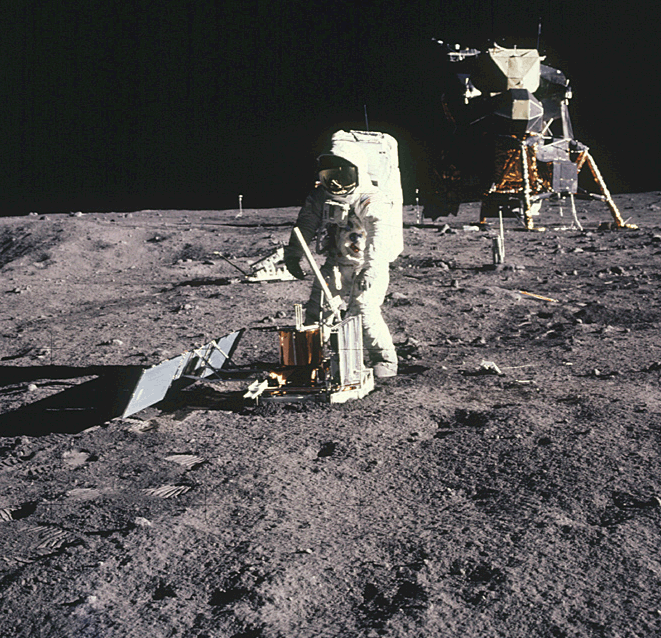
Buzz Aldrin at work on the moon in July 1969.
For the first time, PBS has released rare interviews with the team of astronauts and NASA personnel who brought America to the moon in the 1960s — including one of the first people to walk on the lunar surface.
The newly released footage was filmed during production of the 1998 documentary "To the Moon," which discussed the "space race" between the United States and the Soviet Union that drove the push to land the first humans on the moon. The highlight of the archive is an interview with Buzz Aldrin, who became the second person to walk on the moon 50 years ago this July 20.
The whole archive, which is available at americanarchive.org, includes raw interviews with many key figures from the Apollo program and from the space industry in 1998. From the Apollo program, the archive includes conversations with Jim Lovell (who flew around the moon during Apollo 8 and Apollo 13), Farouk El-Baz (a lunar scientist for the Apollo program) and former NASA Flight Director Gene Kranz.
Related: Apollo 11 at 50: A Complete Guide to the Historic Moon Landing Mission
More From Space.com
More-recent key figures interviewed include astrophysicist Robin Canup and astronomer Carolyn Shoemaker, who is best known for co-discovering Comet Shoemaker-Levy 9, which struck Jupiter.
"These interviews feature firsthand perspectives from many of the scientists involved in the Apollo 11 mission, relating the technical, political and emotional intricacies of an epic journey," PBS said in a statement. "This collection of videos includes 146 raw, unedited interviews with astronauts, engineers, flight directors, geologists and lunar scientists who were involved in the American effort to win the space race and put humans on the moon for the first time in history."
This archive release comes during the PBS initiative "Summer of Space," which includes several new programs. One of these is "Chasing the Moon," which airs July 8 to July 10 at 9 p.m. EDT nightly. This three-part series draws on archival footage that was mostly unused or forgotten from the last five decades to tell the story of how Apollo 11 happened.
- Catch These Events Celebrating Apollo 11 Moon Landing's 50th Anniversary
- Reading Apollo 11: The Best New Books About the US Moon Landings
- Lego's Epic Apollo 11 Lunar Lander Set in Photos!








































